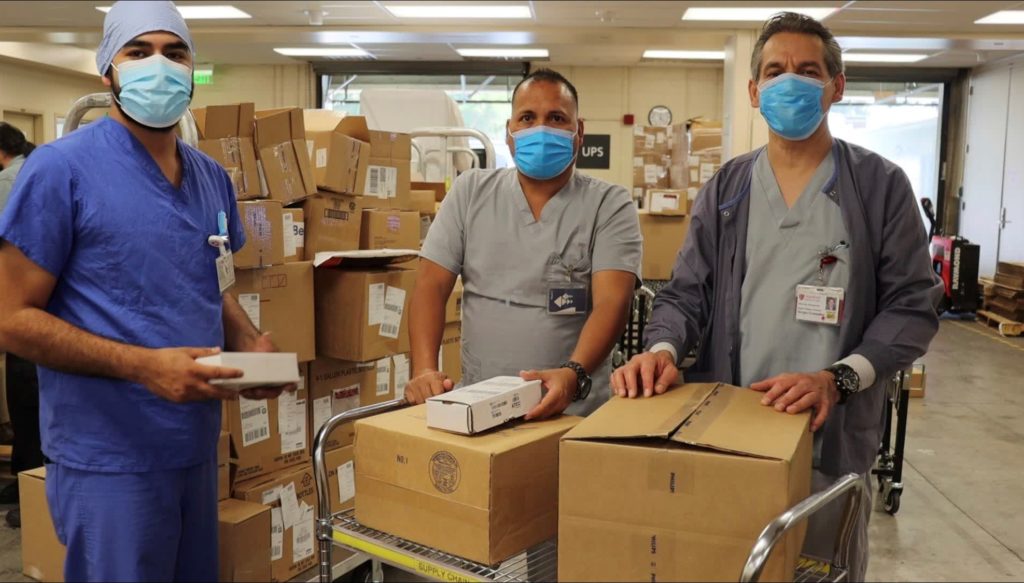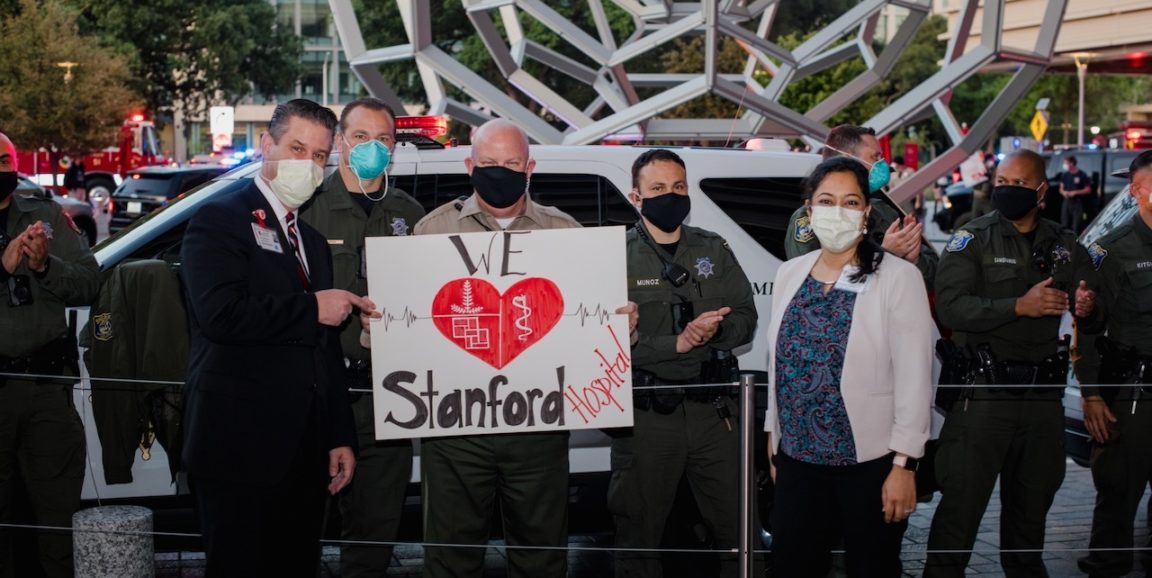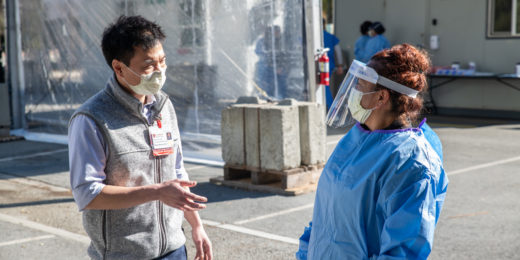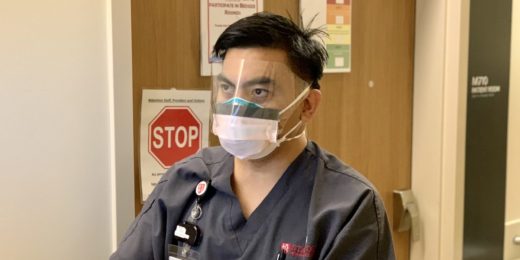Last spring, as hundreds of patients began driving onto the Stanford campus for coronavirus testing, workers in the supply department realized they might soon run out of nasal swabs.
The swab maker they relied on was in Italy, which was in lockdown to stem the spread of COVID-19. The factory was producing fewer swabs, just as health care organizations the world over were desperate for more.
"Demand for products went up overnight at Stanford alone by 400%," said Amanda Chawla, chief supply chain officer and vice president at Stanford Health Care, Stanford Children's Health and Stanford Health Care - ValleyCare. "With nearly all doors closed for basic medical supplies, we had to develop new relationships. And when we couldn't buy something, we asked, 'Can we make it?'"
They partnered with a local 3D-printing company to create the swabs -- enough for all the Stanford Medicine patients who needed a coronavirus test. They also printed face shields and parts for respirators that help protect workers from contracting the virus.
Staying ahead of the PPE shortage
Supplies are easier to find now, but early in the pandemic, Chawla and her 300-plus team of buyers, inventory coordinators, distributors and others worked long hours, ensuring that even during peaks of global demand, caregivers at Stanford Medicine never ran out of personal protective and testing equipment.

"When everything goes smoothly, no one thinks about supply chain," said Chawla. Since the pandemic, it has become clear that "without a well-functioning supply chain, the entire health care organization can come to a standstill."
"I love it," Chawla added, about working in supply chain. "We are in an industry where helping and caring for people is at the heart of what we do."
Chawla, who holds a master's of health administration, started her health care career when she was still in high school, working as a medical assistant in a psychiatric hospital in Kirkland, Washington. She later helped a group of physicians launch a clinical trial site, establishing the procedures for operating trials and recruiting patients.
From there she took a job in a hospital supply-chain department. She remained in that field, arriving at Stanford in 2016 to oversee the purchasing and distribution of nearly 200,000 products for Stanford Medicine's three hospitals and more than 60 clinics. In 2019 she became a vice president, and recently was named Contracting Professional of the Year by The Journal of Healthcare Contracting -- an honor she called "humbling and a recognition of the entire Stanford supply chain team" -- because of her solutions to supply shortages during the pandemic.
One of those solutions was a national exchange for hospitals to trade supplies. As Stanford Health Care began to run low on some sizes of N95 masks -- the snug-fitting plastic-fiber face coverings that offer optimal protection -- Chawla reached out to someone she had met at a conference: the chief executive officer of Resilinc, a company that helps organizations monitor the availability of supplies.
Resilinc, Stanford Medicine and another company, Premier Inc., launched a national exchange through which health care organizations, at no cost, offer their surplus equipment as well as request the supplies they need. The exchange is still running strong, with more than 2,000 organizations swapping goods. Stanford Medicine was able to obtain masks, gowns and cleaning supplies via the exchange.
Chawla also partnered with clinicians to ensure none of the precious personal protective equipment was wasted. They devised guidelines, including when caregivers should wear N95 or surgical masks, how frequently they should obtain new masks, and how to store them when they're having lunch.
And she and her team reached out to manufacturers all over the world to find new sources for supplies. Before COVID-19 restrictions were enacted, a member of her team traveled to India to build a relationship with a manufacturer and ensure the quality of the PPE.

"Guardian angel" for COVID-19 supplies
Chawla is "our guardian angel," said Norm Rizk, MD, professor of medicine and former chief medical officer for Stanford Health Care. "She was inventive and tireless, and did it all with an upbeat attitude and lots of humor. It shows how everyone in Stanford Medicine is a health care worker, not just those on the front line."
As the pandemic and equipment shortages persisted, Chawla's team started to feel the strain of the workload. She insisted that her workers take time off to recuperate, picking up the slack herself.
"She is always worried about how her team is doing," said Katie Dean, administrative director of supply chain. "When she knows someone is having a rough time, she reaches out. She took the time to give handwritten notes to her staff, praising and encouraging them."
Chawla said she's uplifted by her team: "Everyone goes above and beyond," she said. Off work, she rejuvenates by spending time with her two young girls, taking them to parks on weekends. "That's a big stress relief, and an appreciation for the value of life." Just days ago, the family celebrated the birth of a new son.
While the pandemic has upended the hospital supply profession, Chawla sees some benefits, including greater appreciation for her and her colleagues' work and a recognition of the fragility of the U.S. and global supply chain. She also anticipates more domestic manufacturing of supplies and hospitals' keeping more essential equipment on hand.
"This past year has tested our resiliency," she added. "But the pandemic has brought us together and brought forward innovative solutions as we grow and refine, continuing to build the future supply chain."
The Voices of COVID series captures the stories of the many people at Stanford Medicine who have been stepping up to the challenge of the pandemic. Follow along on social media and look for new stories regularly.
Top photo by Katherine Emery: Chawla on the right and Stanford Health Care CEO David Entwistle on the left; Bottom courtesy of supply chain






